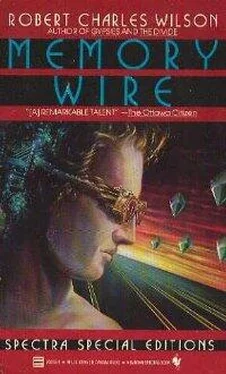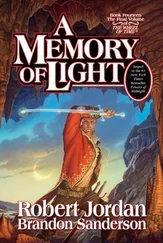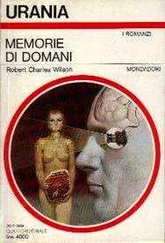Robert Wilson - Memory Wire
Здесь есть возможность читать онлайн «Robert Wilson - Memory Wire» весь текст электронной книги совершенно бесплатно (целиком полную версию без сокращений). В некоторых случаях можно слушать аудио, скачать через торрент в формате fb2 и присутствует краткое содержание. Год выпуска: 1987, ISBN: 1987, Издательство: Bantam Spectra, Жанр: Фантастика и фэнтези, на английском языке. Описание произведения, (предисловие) а так же отзывы посетителей доступны на портале библиотеки ЛибКат.
- Название:Memory Wire
- Автор:
- Издательство:Bantam Spectra
- Жанр:
- Год:1987
- ISBN:978-0-553-26853-9
- Рейтинг книги:4 / 5. Голосов: 1
-
Избранное:Добавить в избранное
- Отзывы:
-
Ваша оценка:
- 80
- 1
- 2
- 3
- 4
- 5
Memory Wire: краткое содержание, описание и аннотация
Предлагаем к чтению аннотацию, описание, краткое содержание или предисловие (зависит от того, что написал сам автор книги «Memory Wire»). Если вы не нашли необходимую информацию о книге — напишите в комментариях, мы постараемся отыскать её.
Memory Wire — читать онлайн бесплатно полную книгу (весь текст) целиком
Ниже представлен текст книги, разбитый по страницам. Система сохранения места последней прочитанной страницы, позволяет с удобством читать онлайн бесплатно книгу «Memory Wire», без необходимости каждый раз заново искать на чём Вы остановились. Поставьте закладку, и сможете в любой момент перейти на страницу, на которой закончили чтение.
Интервал:
Закладка:
Her mother was moaning; her face was bruised. Carlos had pushed her against the kitchen table and hiked her dress above her thighs. The fire burning so close, and all he could think to do was rape her. It made the girl angry, and for a moment she forgot her fear. “Stop it!” she cried.
Carlos looked around.
The alcohol and the fear had done some terrible thing to him. His face was livid, choked with blood. His eyes were all whites. Seeing him, the girl experienced a kind of awe at what he had become. “You,” he said. And went to her.
His hands mauled her. His hands tore at her clothes. She experienced a sudden lightheadedness that seemed to lift her out of her body; she floated aloof from herself and was able to see Carlos, the window, the ash-laden sky, all with a strange and curious impassivity. His hands were to blame, she thought. It was his hands she hated. Carlos was probably innocent. Her mother had said as much. My fault, she thought. She had seduced him. Worse, somehow she had seduced his hands.
She could not clearly see her mother, who lay stunned across the peeling tiles. She did not see, therefore, when her mother roused from her stupor and blinked at the act that was proceeding before her, stumbled in horror to the wooden cabinets by the sink and drew out a knife from the cutlery drawer. The girl was not aware of anything much until Carlos gasped and stiffened above her and then rolled away. His blood, mysteriously, was on her dress. Carlos lay noisily dying, his hands closing on air. The girl’s mother looked down at her with eyes gone as wide as an animal’s. “God help us,” she whispered. “Come on now.”
They ran to the motor launch, but the press of boats in the tiny canal had beaten it against its moorings until it listed into the water and capsized. They gazed at it only a moment. The fire was close enough to smell. It was a sour, rubbery smell. It was acrid and hurt the girl’s nose. Smoke eddied down the canal among the boats and beneath the pontoon bridges crowded with refugees. People were everywhere, fleeing. They had not yet panicked, but she could tell panic was only moments away. And then they would begin to push and run, the girl thought, and what then? What then?
Her mother tugged her forward. They had nothing to carry. Their possessions were all lost. Carlos was lost. Carlos, if he had not already died, would surely perish in the fire. A secret part of her exulted in that, and another part of her recorded the exultation: she had been the occasion of his death and, worse, his death had pleased her.
They traveled a half mile to the south and east with the fire on their heels—a burning as vast as the girl had ever seen, and the fire ’copters helpless in the face of it— before the crowd began to panic. The girl’s mother lifted her up and carried her for a time, but she was heavy and her mother was no longer a young or healthy woman. They toppled together against a mesh-wire restraining fence. More bodies fell against them until the fence gave way at last and dropped them into a waste canal. The girl sank deep into the foul water, and she might have died there— wanted to die there. But it was as if she had become two people. Her body strove for the surface. Her legs pumped, her lungs gasped for air, she splashed until she saw the flames licking up behind her. She dog-paddled down the mesh- and concrete-lined canal until she could scramble up a pontoon and rest there, gasping.
She looked for her mother, but her mother was gone.
Her mother and Carlos. Both gone.
It was, of course, her fault.
The fire too. She might have willed it into being. She had wished for it often enough, she realized now: an apocalypse to devour Carlos and erase her untimely adulthood. And wishes count. “Be careful what you wish for,” her mother used to say. “You might get it.”
The heat was agonizing on her face, the massed screaming of hundreds of voices awesome. The little girl realized that she was talking to herself. “If wishes were horses.” Under her breath, low and staccato, as she joined the fleeing mob. “ Then beggars would ride.”
Knees jostled her. Once, a woman tugged at her hair in an effort to climb around her. But she moved steadily and without panic. If wishes were horses, then beggars would ride. If wishes were horses … If wishes…
She walked herself into unconsciousness in the guilty knowledge that she should have died in the fire. In some real sense she did die then. The thing she had been was dead. Be dead, she thought; be dead with Carlos; be dead with Mama. She willed herself to die. And died, though her body sustained her through the crush of frightened adults. The hours that followed were obscure and anarchic, but it was enough to know that she had awakened, her face singed hairless and her lungs thick with fluid, a fever raging in her—but alive—in a Red Cross camp on the mainland. She was a new creature now, blank and anesthetized, without history, nameless, with only a single certainty: that she was not a good girl and never would be.
All this Teresa had seen.
But the girl wasn’t gone. The girl was the girl in her dreams, and she stood now in her twine shoes and with her large eyes, not a memory but someone tangibly real, a separate entity. They stood in limbo, and she understood that this was a place inside herself, a place the dreamstone had brought her, the place the little girl lived. And if the girl is here, Teresa thought, and if she can speak, doesn’t that mean she’s alive somehow still? Alive inside me!
“You know who I am,” the little girl said solemnly.
She did, of course. The girl was herself. But more than that. A kind of ghost. A ghost of what she had been, a ghost of what she had never become.
It was possible to see all this, to understand it; it was possible, she thought, even to forgive. The girl had done nothing wrong. But the vision had been vivid and shocking, and the idea of stepping back inside that abandoned shell, of becoming, in some sense, this ragged girl again—
“But you have to,” the girl said. “Seeing isn’t enough.”
No. It was impossible. Too many layers of scar, a life built on that denial. To own all that torment, to own her mother and Carlos and the fire … it was terrifying.
Fire and guilt had made her what she was. She was Teresa; she could not put aside Teresa.
The girl stepped closer. Not really a little girl anymore, Teresa thought: more like a reflection in a mirror, but tousled and frightened. “I didn’t die. I walked you through the fire. I walked you to the mainland. You tried to kill me. You tried to kill me with the pills. But you can’t do it that way.”
Go away, she thought dazedly.
“I’ve been hidden too long,” the girl said.
Teresa said desperately, “It wasn’t your fault. I know that now. I—”
But the girl shook her head. “It’s not enough!”
A swirl of panic. “What, then?”
“Take me back.” The girl advanced. “Touch me.” She held out her small hands. “ Be me.”
Teresa struggled to frame an answer, but could not: she was lifted roughly, shocked by a sudden and terrible light, surrounded at once by gunfire and smoke and the plangent stink of fear.
CHAPTER 14
Keller put his hands on her shoulders. Her eyes blinked suddenly and unseeingly open; the dreamstone was still clasped tight in her hands.
The contact between them was electric and strange, vastly more powerful than it had been that moment in the church in Cuiaba. He was lost in it.
He smelled the hot, granular earth of a manioc field in Rondonia, and knew the memory would be a bad one.
Until the moment of the ambush, Keller had every reason to believe this patrol would turn out okay.
Читать дальшеИнтервал:
Закладка:
Похожие книги на «Memory Wire»
Представляем Вашему вниманию похожие книги на «Memory Wire» списком для выбора. Мы отобрали схожую по названию и смыслу литературу в надежде предоставить читателям больше вариантов отыскать новые, интересные, ещё непрочитанные произведения.
Обсуждение, отзывы о книге «Memory Wire» и просто собственные мнения читателей. Оставьте ваши комментарии, напишите, что Вы думаете о произведении, его смысле или главных героях. Укажите что конкретно понравилось, а что нет, и почему Вы так считаете.












